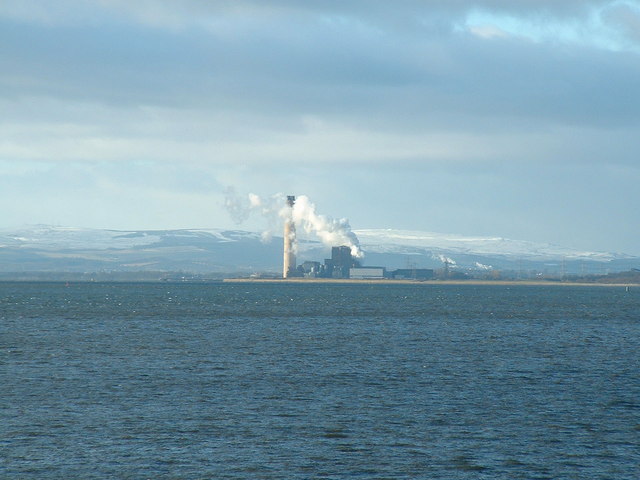
It's claimed a roll-out of carbon capture and storage technology could generate a large number of jobs and create a market worth up to £35 billion by 2030.
CCS can capture up to 90% of carbon dioxide emissions produced from fossil fuels and stop them from entering the atmosphere.
Plans for the UK's first carbon capture project at Longannet Power Station in Fife were scrapped in 2011 after ministers failed to reach a deal with power companies.
There are fears this latest idea could fail because of uncertainty surrounding UK energy policy.
A joint report published by the Trade Union Congress and the Carbon Capture and Storage Association will dominate talks at Aberdeen University today.
The event, chaired by Colin Parker, Chief Executive of the Aberdeen Harbour Board, will bring together representatives from across government, industry, academia and NGOs to set out the CCS prize in Scotland. Energy Minister Fergus Ewing will open proceedings with a key note address. Speakers including representatives from Shell, Scottish Enterprise, Scottish Carbon Capture and Storage (SCCS) and the Scottish Trades Union Congress (STUC) will highlight how Scotland is well placed to reap the significant benefits of a newly emerging global CCS industry.
Fergus Ewing, Minister for Business, Energy and Tourism said:
"We welcome the CCSA and TUC report highlighting how CCS could accrue massive economic benefits as well as deliver substantial reductions in carbon emissions. In Scotland, we recognise carbon capture and storage as a critical new technology for its potential to play a key role in helping Scotland to achieve its emissions reduction targets and the decarbonisation of our electricity generation sector and we firmly believe that the North Sea's vast CO2 storage potential; coupled with our existing oil and gas capabilities, ready supply chain and existing infrastructure means that Scotland is in a strong position to be at the centre of CCS development in Europe.
"Scottish Ministers are very supportive of the collaboration between Shell U.K. Limited and SSE to develop the world's first commercial-scale full-chain gas carbon capture and storage (CCS) demonstration project at SSE's Peterhead Gas Power Station, however to secure a wider CCS industry, it is important that the UK Government not only commits to supporting both projects under the current CCS Commercialisation Programme but also encourages and incentivises a further phase of CCS projects, such as the Captain Clean Energy Project in Grangemouth."
Dr Luke Warren, Chief Executive of CCSA said: "This report definitively shows that the successful deployment of CCS has wider benefits for the UK economy. Respected international and UK organisations agree that without CCS in the mix, costs of meeting climate change targets will rise significantly. We have gone further in this report to show that the cost savings from CCS have a real impact on the average UK household – increasing their disposable income and reducing the risk of fuel poverty."
The North East of Scotland has been identified as one of the best places in Europe to develop CCS. The Shell and SSE Peterhead CCS project in Aberdeen promises to deliver a world first; a full-scale CCS project at a gas-fired power station. There are also many other CCS projects in Scotland which could be in operation by the end of the decade.
Dr Philippa Parmiter, SCCS Project Manager, said: "This event is about showcasing the value of a CCS industry to Scotland in economic terms and, as importantly, as a means of achieving crucial carbon targets. Carbon storage is not just a pipe dream. Our world-leading academic community is working closely with industry to help ensure that CCS becomes a commercial reality by the 2020s and beyond."
Dr David Vega-Maza, a CCS researcher from the University of Aberdeen, said: "Aberdeen's offshore resources offer a perfect platform for CCS technologies. We welcome this report and look forward to combining the University of Aberdeen’s wide range of expertise with those of our partners to realise a low-carbon future."
The report also highlights how CCS deployment means Scotland could be poised to create thousands of jobs in CCS plant construction and operation phases.
TUC General Secretary, Frances O'Grady, said: "Carbon capture storage technology offers a way to meet our environmental targets, while creating thousands of skilled, well-paid jobs and transforming regional economies. This is a great opportunity to re-invigorate our manufacturing sector and bring new R&D, design and construction jobs to areas like Yorkshire, the North East and Scotland. But without stronger government backing the UK risks losing its competitive advantage and all the jobs and economic activity that CCS could bring."
Stephen Boyd, Assistant Secretary of STUC, adds: "The Peterhead CCS project is a major economic opportunity for Scotland to establish itself as a leader in this technology. We currently have a global advantage in establishing a world leading Scottish industry, securing thousands of regional jobs; but only if Government delivers the current CCS projects under its CCS Commercialisation Programme and keeps up this momentum with follow on projects."

 Man, 44, seriously injured in hospital after crash between Comrie and Rosyth
Man, 44, seriously injured in hospital after crash between Comrie and Rosyth
 John Swinney announces SNP leadership bid
John Swinney announces SNP leadership bid
 Closures on A92 from TONIGHT for roadworks
Closures on A92 from TONIGHT for roadworks
 12°C
12°C
 17°C
17°C
 14°C
14°C